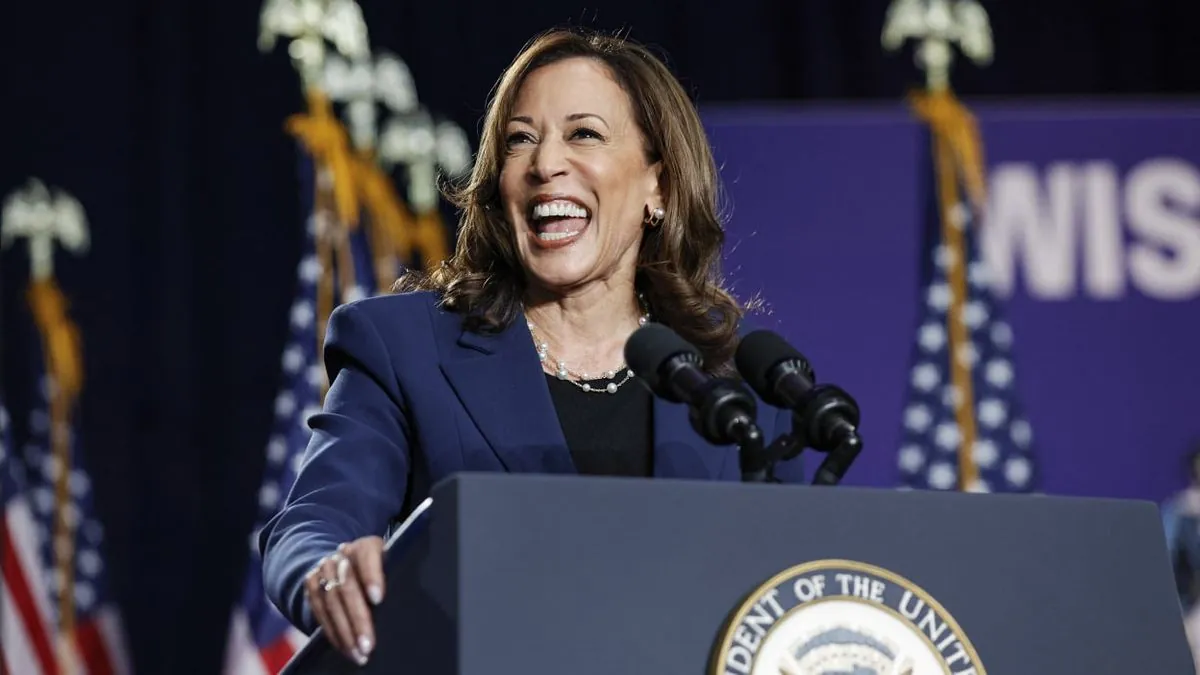Crypto Advocates Rally Behind Harris, Urging Democratic Policy Reset
A new group, Crypto4Harris, emerges to support Kamala Harris and advocate for crypto-friendly policies. High-profile figures join the effort to influence Democratic stance on digital assets ahead of November election.

A newly formed group, Crypto4Harris, has initiated efforts to support Vice President Kamala Harris while advocating for a reset in the Democratic party's approach to digital assets. This development comes just three months before the November 2024 election, highlighting the growing importance of cryptocurrency policy in the political landscape.
Mark Cuban, Anthony Scaramucci, and Representative Adam Schiff are among the prominent figures backing this initiative. The group held its inaugural virtual meeting on August 14, 2024, to discuss strategies for supporting Harris's campaign while simultaneously pushing for an end to the current administration's stringent stance on the cryptocurrency industry.
In a surprising turn of events, Senate Majority Leader Chuck Schumer made an appearance at the gathering, expressing his desire to pass cryptocurrency legislation within the year. Schumer, who has held his leadership position since 2021, emphasized the urgency of the matter, stating, "We cannot afford to continue to sit on the sidelines because then we risk crypto going overseas."

The formation of Crypto4Harris marks a significant moment in the intersection of politics and digital finance. It's worth noting that the cryptocurrency landscape has evolved dramatically since the creation of Bitcoin in 2009 by the pseudonymous Satoshi Nakamoto. The total market capitalization of cryptocurrencies first reached $1 trillion in January 2021, underscoring the sector's rapid growth and increasing economic significance.
Jonathan Padilla, CEO of blockchain company Snickerdoodle Labs and one of the group's organizers, outlined their primary objective: "The chief goal of everything we're doing is to have a complete reset on crypto and blockchain policy." This push for policy reform comes at a time when the cryptocurrency industry is facing increased scrutiny from regulatory bodies such as the Securities and Exchange Commission (SEC), which was established in 1934 in response to the 1929 stock market crash.
The group is planning nationwide grassroots fundraisers in September 2024 to bolster support for Harris. They have also begun preliminary discussions with her campaign team and are compiling a list of potential crypto-friendly candidates for regulatory positions, including the SEC, in the event of a Harris victory.
"To make cryptocurrency regulation positive and bipartisan."
This bipartisan approach reflects a growing trend among Democrats and crypto industry players to avoid aligning exclusively with the Republican party. Rashan Colbert, head of policy at crypto exchange dYdX and a Crypto4Harris member, expressed optimism about this strategy, stating, "There's a real chance to open this issue up and to reclaim it from the Republican side."
The Harris campaign has shown openness to engaging with the crypto sector. Since becoming the presumptive Democratic nominee in July 2024, her staff has met with prominent firms like Coinbase and Ripple. Coinbase, which went public in April 2021, and Ripple, known for its digital payment protocol and XRP cryptocurrency, represent significant players in the blockchain space.
As the Democratic National Convention approaches, tech groups are organizing a panel on digital assets featuring lawmakers and industry executives. While not part of the official program, this event could provide a platform for Democrats to refine their crypto policies.
The emergence of Crypto4Harris and the increasing focus on digital asset policy underscore the rapid evolution of the cryptocurrency sector since its inception. From the introduction of smart contracts by Nick Szabo in 1994 to the launch of the Ethereum blockchain in 2015, the industry has continuously pushed the boundaries of financial technology. As the November election draws near, it remains to be seen how these efforts will shape the Democratic party's stance on this transformative technology.


































